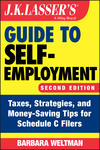Mailbox Rule Is Dead
Tax returns, Tax Court petitions, and other time-sensitive documents are treated as having been timely filed with the government if they are mailed on time (“timely mailed timely filed rule”). Under the common-law mailbox rule, some courts have treated a taxpayer’s testimony that the item was put in the mailbox by the due date as evidence of a timely delivery.
However, the U.S. Supreme Court has refused to hear an appeal from a Ninth Circuit decision rejecting the mailbox rule (Howard L. Baldwin, CA-9, 921 F.3d 836 (2019); No. 19-402, petition for certiorari denied 2/24/20), letting that appeals court decision stand.
Although it had in a previous decision permitted testimony for the mailbox rule, the Ninth Circuit in Baldwin distinguished the old decision, and deferred to a Treasury regulation that states that the only permissible way to establish that a return or other document has been timely mailed is with a certified or registered mail receipt stamped by the U.S. Postal Service (Reg. Sec. 301.7502-1(e)(2)(i)).
Note: Reg. Sec. 301.7502-1(e)(2)(i) also treats proof of proper use of an IRS-approved private delivery service as establishing timely delivery. The Ninth Circuit decision did not address what written proof from an IRS-approved private delivery service would be acceptable. The IRS says, “The private delivery service can tell you how to get written proof of the mailing date.” For returns that you e-filed through software, you receive two emails: one stating that your return was filed and the other that it was accepted. If you use a paid preparer, he or she can provide you with copies of the emails received with respect to the e-filing of your return.
Active participation
Test for determining deductibility of IRA deductions. Active participants in employer retirement plans are subject to IRA deduction phase-out rules if adjusted gross income exceeds certain threshold.



